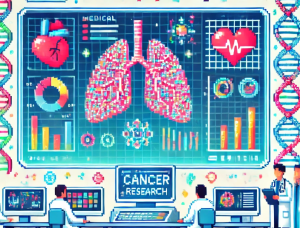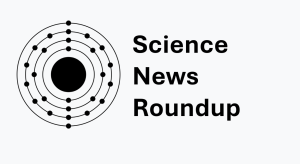
Science New Round Up, April 23, 2025
Time is Running Out—Expand Your Scientific Insight!
Receive trusted insights that empower you to understand and contribute to the world of science. Our fully independent, self-funded work depends on your subscription. 🔥 Your action matters—share this blog right now to expand our critical network of knowledge seekers!
A New Interactive Tool Models Natural Hazards Fueled by Climate Change
In response to the escalating threat of climate change, Columbia University’s National Center for Disaster Preparedness has spearheaded a groundbreaking project to predict and map future climate-driven hazards, such as tornadoes, wildfires, and sea level rise, offering critical tools for policymakers, relief organizations, and city planners to enhance community resilience. Despite the urgent need for accessible climate data, the suspension of tracking initiatives by the previous U.S. administration underscores the vital importance of these open-source resources in equipping stakeholders with robust insights to mitigate the looming risks and foster informed decision-making across sectors.
Activating the ‘Silent Majority’ to Fight Climate Change
A groundbreaking series of global surveys and experiments reveals that the public’s desire for climate action is not only deep and widespread but also stifled by a pervasive misperception that only a minority supports these initiatives. Correcting these false beliefs, fueled by disinformation and human psychology, could unleash powerful social tipping points, encouraging individuals and governments to more vigorously tackle the climate crisis. Advocates suggest that low-cost, scalable communication campaigns to realign perceptions with reality could ignite a latent climate movement, potentially leading to transformative and unstoppable progress in addressing global warming.
Argonne Leverages AI and Supercomputing to Revolutionize Cancer Research
Using Argonne National Laboratory’s new Aurora supercomputer, researchers are advancing cancer drug discovery by leveraging high-performance computing and AI, enabling previously unimaginable screening speeds and paving the way for breakthroughs against drug-resistant cancer targets. This potent combination of computational power and AI tools offers hope for addressing “undruggable” proteins through innovative collaborations, revolutionizing cancer treatment timelines and improving patient outcomes.
Climate Groups Get a Reprieve From Trump’s Rumored Earth Day Massacre
The Trump administration’s rumored attempt to revoke the IRS tax-exempt status of climate-focused nonprofits has sparked fear and uncertainty, potentially crippling smaller organizations and hindering larger ones, while undermining vital climate research efforts at a time when federal support is already lacking. This move could stifle crucial advocacy and scientific discourse, underscoring the administration’s broader strategy to curtail environmental and educational initiatives, triggering legal and civic resistance from threatened groups.
News on climate change is more persuasive than expected
Research reveals that exposure to climate change news can significantly increase concern among skeptics, countering the common belief that such efforts are ineffective. While this newfound awareness does not always lead to immediate policy support or behavioral change, the study underscores the importance of engaging skeptics in meaningful dialogue and reevaluating the impact of media literacy to foster collective climate action.
Pope Francis was a climate hero. Trump’s reign gives his words extra meaning
Pope Francis’ landmark encyclical “Laudato Si: On Care for Our Common Home,” issued shortly after Donald Trump announced his first presidential campaign, called for urgent action on climate change by highlighting its impact on the world’s most vulnerable communities. As President Trump continues his second term with policies that disregard environmental and immigrant rights, Francis’ message remains critically relevant, emphasizing the intertwined nature of social justice and environmental stewardship, and urging collective global responsibility to address the climate crisis.
What would change your mind about climate change? We asked 5,000 Australians – here’s what they told us
Amid escalating climate disasters, Australian public opinion on climate change is highly polarized, with research revealing a spectrum of beliefs from alarmed to dismissive. A significant portion of Australians remain open to change, highlighting that effective climate communication must prioritize clear, trusted, and depoliticized information, as well as visible governmental and corporate action, to strengthen public support for climate initiatives amidst a growing tide of misinformation.
Will Security Challenges Force Trump to Confront Climate Reality?
The current U.S. administration’s denial of climate change significantly hampers its ability to address pressing international security concerns, including geopolitical competition, infrastructure vulnerabilities, and disaster preparedness, especially as countries like China leverage climate resilience as a strategic advantage. Failure to integrate climate security into foreign policy threatens to undermine U.S. interests and cede geopolitical influence to competitors committed to aiding vulnerable regions, further exacerbating global instability and migration challenges.
Zohran Mamdani Tackles Climate Change and New York City’s Cost-of-Living Crisis
Zohran Mamdani’s “Green Schools for a Healthier New York City” plan seeks to renovate public schools and transform them into eco-friendly resilience hubs, aiming to prove that climate action can enhance the quality of life for working-class New Yorkers. This initiative, part of his broader campaign, underscores Mamdani’s commitment to affordable living and environmental justice, despite potential pushback from external political challenges and funding constraints.



